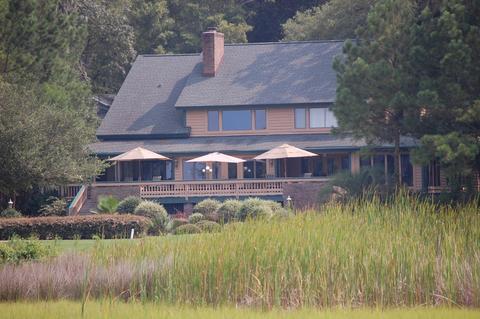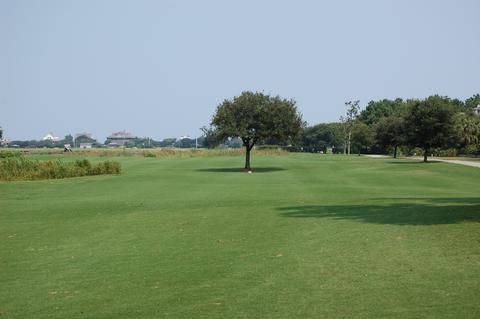I've spent the better part of the last two years visiting nearly 80 golf course communities and a handful of private clubs not directly affiliated with any housing development. To remain as objective as possible, I don't do too much research on a course before I play it; in most cases, I'll simply click on the "directions" tab at the course's web site so I know where I am going. I prefer not to be swayed by a course or community with a fancy yardage book and lucious photos posted on line compared with those courses that have little, if any, presence on the Web. On the other hand, it is difficult to avoid the name of the course architects since the communities put those names front and center. That builds a certain expectation if the name is well known.
In the coming weeks, I'll share some of the highlights, and maybe a few lowlights, of the last 22 months on the golf community beat. For a thorough examination of golf course communities in the areas of major southern cities, as well as more remote locations, I invite you to subscribe to the HomeOnTheCourse community guide. It is the only place you will find objective, unbiased reviews of golf course communities, stripped of all the marketing hype. At just $39 a year for six jam-packed issues, it might just be the best real estate investment you ever make.

The 3rd at Colonial Heritage is short and treacherous. Many of the fairways at the Arthur Hills course are perched above ravines.
Excellence by Design: Arthur Hills layouts surprise
River Islands Golf Club was a revelation when I played it late last year. Located in Kodak, TN, just 10 minutes from I-40 and about 45 minutes from Knoxville, I stopped there basically because it was on my route to Knoxville and I would not have had time to play closer to the city. River Islands was also dirt cheap to play, about $50 as I recall; the adjacent community was just starting up and only three or four homes had been built. I'm glad I stopped, as it gave me my first real taste of an Arthur Hills layout. Over the last two years, his designs have been the most consistently enjoyable of all I've played, and the most challenging.
River Islands played along and occasionally over the French Broad River; a few of the holes are actually on an island in the river, thus the course's name. The only earth Hills pushed was around the greens, where he created swales and mounds that, on some occasions, hid the bottoms of the flagsticks from fairway views. He built some nasty pot bunkers into some of the mounds. I noticed similar qualities at his terrific design for the Palmetto Course at The Landings near Savannah. There he worked with marsh instead of a river, but the effect was similar - good to excellent shots rewarded, but fair or worse shots penalized around the modest-sized, well protected greens.
Maybe because he is getting on in years and wants golfers and developers to know he still has the fire, Hills shows a bit of a mean streak at the less than year old Colonial Heritage, just north of Williamsburg, VA, where, inside a community restricted to those 55 and older, he's built a course for young studs. Water is in short supply on the Colonial Heritage course, replaced by ravines every bit as treacherous. Some fairways tilt toward the hazards, and even the short par 4s are scary propositions (see photo). One par 3 had the narrowest entryway I've played. I loved the course, in a masochistic sort of way.
Only one Hills layout, at Dunes West, north of Charleston, SC, seemed to have been dumbed down for resort players. Fairways were wide open and the greens were large and receptive. Few mediocre shots - and I hit plenty of them when I played a few weeks ago - were penalized. I preferred his other Charleston area course, at Coosaw Creek Golf Club near the airport, for its more thought-provoking shots from tees and rolling fairways.
All in all, though, the Arthur Hills courses I've played in the last two years have been a pleasant surprise, and I encourage you to visit his firm's web site -- http://www.arthurhills.com/courses.aspx -- where he lists the courses he has designed and indicates which are public and which private.

Hills likes to challenge the more accomplished players with forced carries that require both distance and placement in order to have the best possible approach to the green. At his Palmetto Course at The Landings, many carries are over marsh.

The 5th at River Islands in Kodak, TN, plays across the French Broad River, which comes into play on five holes at the Arthur Hills designed daily fee course.

























